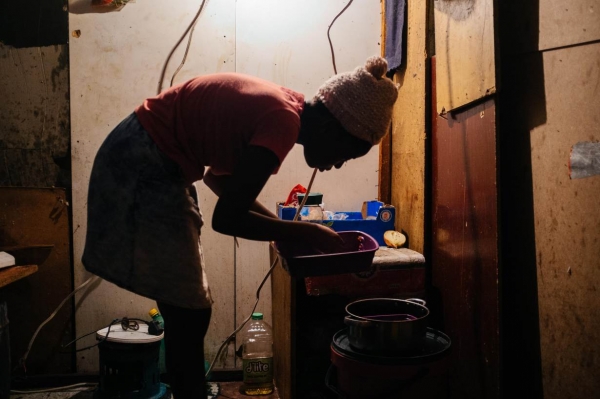South Africa’s most recent census figures from 2011 show that more than 3% of the population is composed of non-South African citizens. Many of those “non- citizens” are from Zimbabwe, above all women, who leave their country because of poverty, growing levels of hunger, unemployment, severe floods and economic hardship.
Zimbabwean women, who are caregivers, household heads and main breadwinners for their families often feel a sense of obligation and urgency in migrating. These women dream of starting a new safe life in South Africa where they think they will be able to find work, manage to take care of their children and have a better lifestyle. However, the majority of them find themselves in Johannesburg’s notorious “dark buildings” in crowded and derelict accommodations, like a small one room flat with ten or more people, illegally seized by rogue landlords.
According to the data collected by the municipal government of Johannesburg, more than 1, 470 properties in the town have been taken over by people who pretend to be the rightful owners. These illegal landlords rent out crowded rooms for a very high price and cut off electricity when the tenants cannot afford to pay. Some of these buildings have no electricity at all, they have curtains instead of doors and few toilets. During the lockdown the conditions of these women have even worsened. A lot of them have lost their job and they have been obliged to choose between being able to feed their children or paying rent.
Indeed, Ethel Musonza, founder of ZIWISA (Zimbabwe Isolated Women in South Africa) told the Thomson Reuters Foundation that the lockdown has been particularly painful for single women in Zimbabwe especially because landlords wanted to evict them because they were unable to pay rent. ZIWISA is made up of women who have managed to get work permits, who obtained the refugee status or who have crossed the borders illegally and therefore they have no papers. ZIWISA connects Zimbabwean women mainly over WhatsApp for help with food, rent and emotional support; since March during lockdown this support has doubled. The Whatsapp group is the main means of communication that connect women in similar situations in several provinces.
To read more, please visit:
https://evictionlawyerssouthafrica.co.za/category/electricity/
https://www.backabuddy.co.za/charity/profile/participateempowernavigatenpc
https://samponline.org/wp-content/uploads/2016/10/Zimbabwes-Exodus-Chapter-11.pdf
Author: Leyla El Matouni







